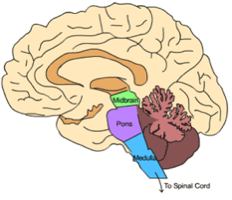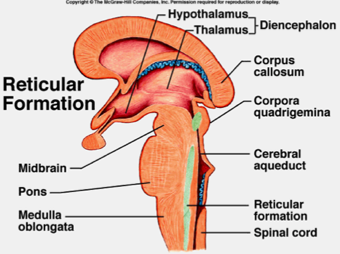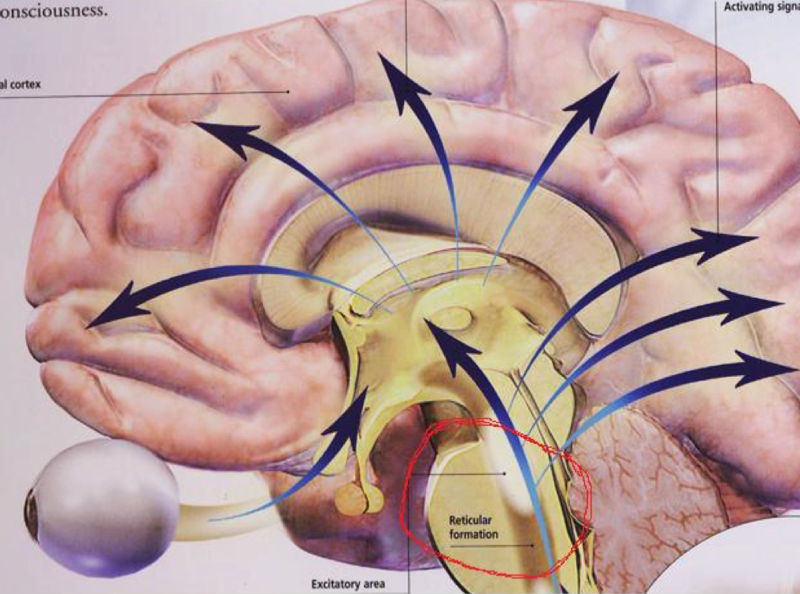The Brain Stem!
Evolutionarily speaking, the brain stem (see right) is the oldest part of our brain. The basic design of this area of the brain, which is in the deepest part of the brain and connects directly to our spinal area, has not changed much in millions of years; our brainstems are remarkably similar to reptilian brains. In fact, some researchers refer to the human brainstem as the reptilian brain.
There is strong reason for this association. The brain stem takes care of vital autonomic systems that govern areas such as our heart, lungs, stomach and even bodily temperature.
Another feature that is gaining considerable attention these days is the reticular activating system (Sousa, 2011:6; Willis 2011), or the RAS. The RAS is highly relevant to teaching and learning as it controls our attention. Although reptiles may not go to school the way we do, evolution has given them the gift of attention via the pursuit of self-preservation. Therefore, they pay attention to what their bodies deem important. This is also why students fall asleep during boring lectures. Boring lectures bore the body to sleep because the body sees no important reason to stay awake, even if the PFC thinks the lecture may be important.
In a nutshell, the RAS passes these three types of information: (a) stimuli related to basic living needs [related to thirst, hunger, safety, etc], (b) stimuli related to executive decisions made earlier, and (c ) novel items/experiences. See also the Thalamus.
There is strong reason for this association. The brain stem takes care of vital autonomic systems that govern areas such as our heart, lungs, stomach and even bodily temperature.
Another feature that is gaining considerable attention these days is the reticular activating system (Sousa, 2011:6; Willis 2011), or the RAS. The RAS is highly relevant to teaching and learning as it controls our attention. Although reptiles may not go to school the way we do, evolution has given them the gift of attention via the pursuit of self-preservation. Therefore, they pay attention to what their bodies deem important. This is also why students fall asleep during boring lectures. Boring lectures bore the body to sleep because the body sees no important reason to stay awake, even if the PFC thinks the lecture may be important.
In a nutshell, the RAS passes these three types of information: (a) stimuli related to basic living needs [related to thirst, hunger, safety, etc], (b) stimuli related to executive decisions made earlier, and (c ) novel items/experiences. See also the Thalamus.




These video chapters were created as part of H107 (Educational Neuroscience) to provide an introduction to human brain dynamics, by L. Todd Rose, Harvard Graduate School of Education.
